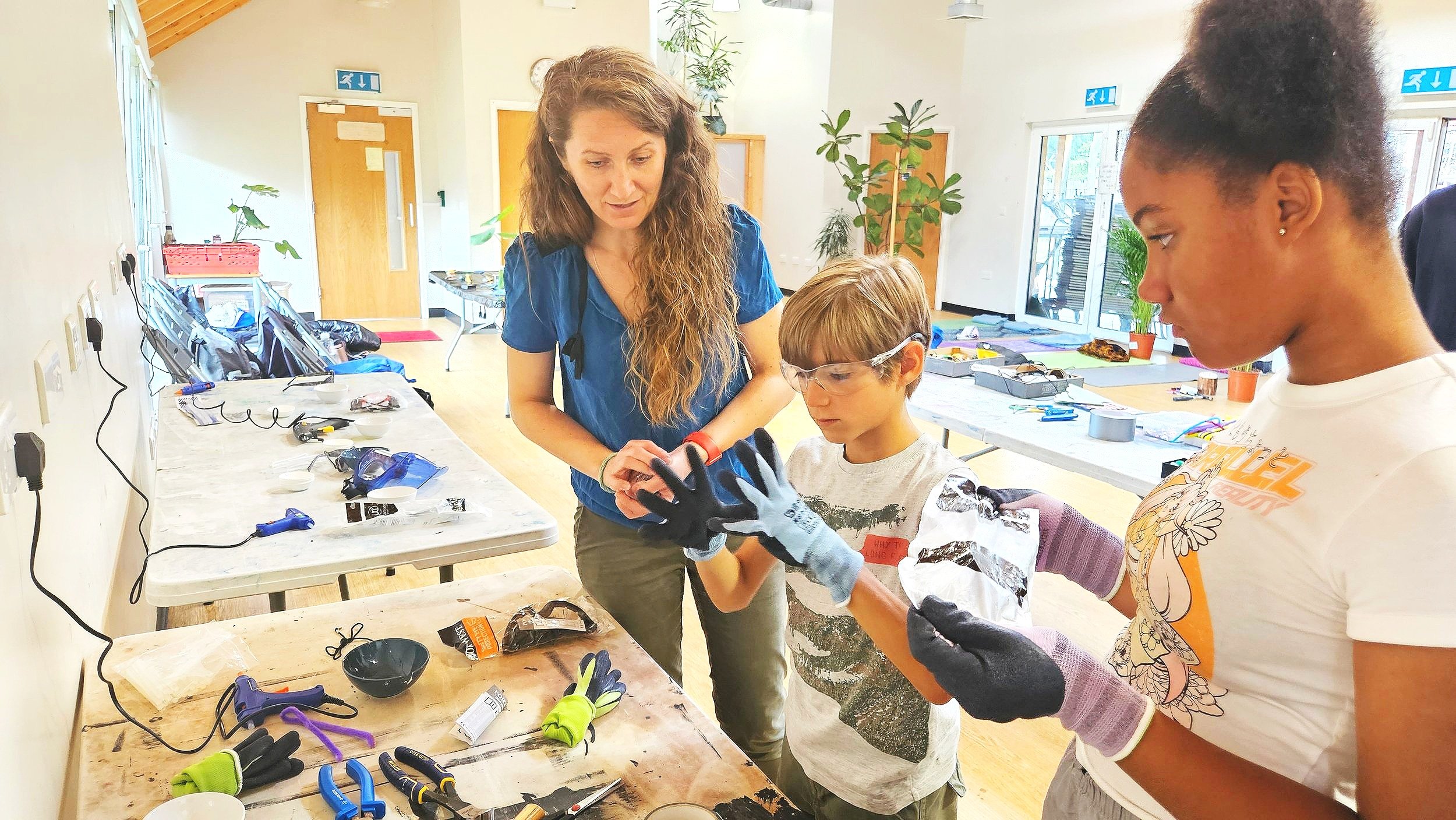Workshops
Sessions start at 10:00 and finish as 15:00 at weekends and during the school holidays with a maximum of 6 children and at least 2 supervisors per group.
Each day will focus on a theme such as character strengths, life goals and critical thinking. The workshop is broken down into six stages.
Inspiration for the day’s theme. The workshop leader will stimulate the children’s curiosity with a practical demonstration such as a scientific experiment with unexpected results analogous to the theme.
Getting into flow with discussion and philosophical inquiries. Children experience being present in the moment and observing their thoughts and emotions. We use ‘The Silence Game’ and ‘Sound bath’ techniques with instruments and music to create a relaxed atmosphere.
Creation Station - Using a Montessori inspired philosophy, children will turn their abstract thoughts and emotions into a project for the day that will use a range of materials such as: clay, wood, DIY tools, porcelain, lego, bric-a-brac, paint, pastels, circuit boards etc. Children will discuss their ideas together using their individual styles of thinking then work individually and collectively to realise their goals. This is the main activity of the day.
Analysis and reflection while regrouping as a team. Discussing our perspectives and conceptualising what our activities have taught us. This is where group coaching techniques and tools are powerful and effective at helping children develop practical life skills.
Feedback on the session.
Applying to real life (hands-on homework).
The workshop leader will use positive psychology interventions throughout the day to develop the ‘seven Cs’
Challenge - personal and collective.
Competence - after dedicating some effort and time into a skill children feel competence when they succeed.
Control also known as autonomy - being in charge of your own ideas, choices and decisions.
Curiosity - seeking mystery, complexity, understanding, meaningfulness and things that intrigue you.
Critical thinking - strategic thinking when you make complex decisions instead of performing tasks like a robot and harnessing your instincts to confidently improvise.
Communication skills and empathy - the ability to relate to one another, feeling supportive and a sense of belonging.
Creativity - original innovation expressing human perspectives and emotions rather than imitation.
*Our methodology is inspired by the PERMA model (Positive Emotion Engagement Relationships Meaning Accomplishments) developed by Dr Martin Seligman at Pennsylvania University. This framework defines the characteristics of a flourishing individual and has been shown to improve happiness, decrease anxiety, depression and stress.










